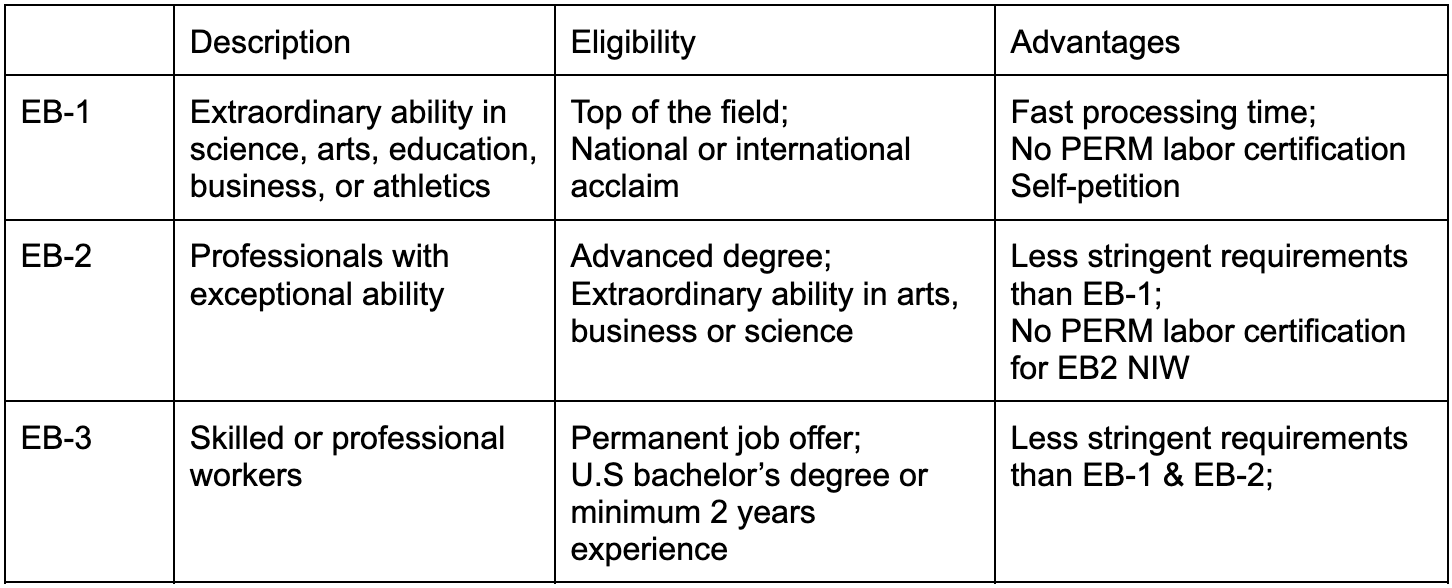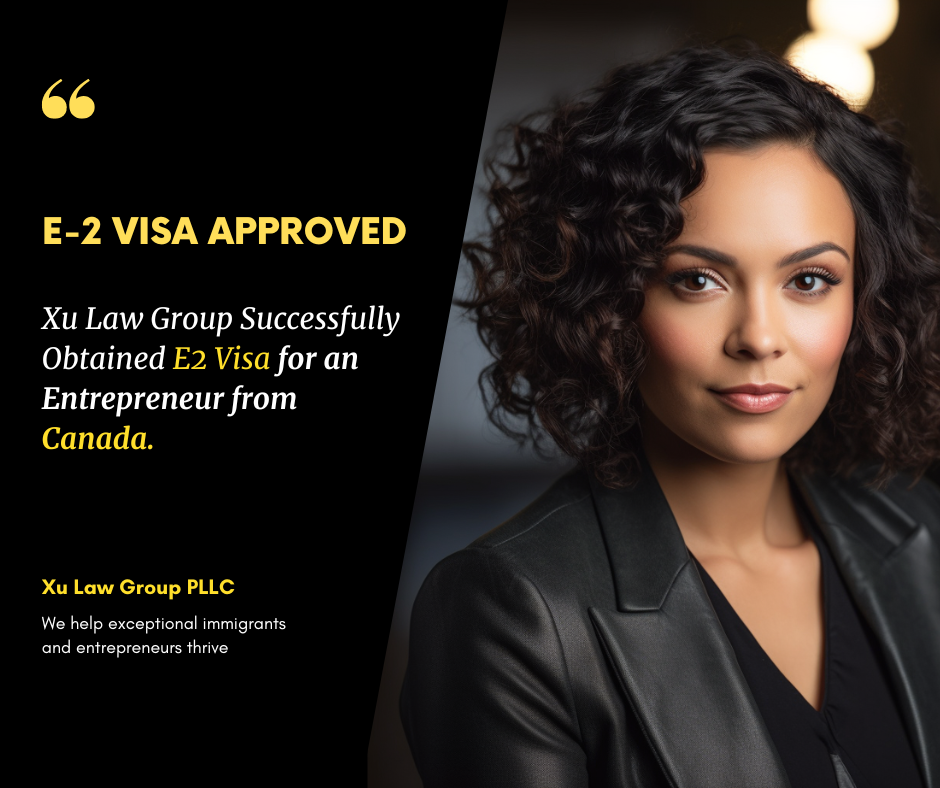How To Choose Between EB1, EB2, and EB3?
EB1, EB2, and EB3 are three types of employment-based immigration categories. To decide if an applicant is qualified for the category, U.S. Citizenship and Immigration Services (USCIS) will evaluate their education level, work experience, job offer, expertise, and other qualifications.
Difference Between EB1 vs EB2 vs EB3
What is an EB1 extraordinary ability visa?
EB1 extraordinary ability visa is an employment-based immigration category that is reserved for foreign nationals who have demonstrated extraordinary ability in sciences, arts, education, business, or athletics. There are three types of EB1 visas available, which include EB1A (Alien of Extraordinary Ability), EB1B (Outstanding Professors and Researchers), and EB1C (Multinational Executives and Managers).
The EB1 visa requires individuals to have sustained international or national recognition as top experts in their fields. The EB1 visa has a significant advantage in that it allows applicants to bypass the PERM labor certification, which usually takes months for the Department of Labor (DOL) to approve. Thus, applying for the EB1 visa can significantly reduce the waiting time for obtaining a green card.
What is an EB2 visa?
The EB2 visa is an employment-based immigration visa category in the United States that is reserved for foreign nationals who possess an advanced degree (Master’s or Ph.D.) or have extraordinary ability in the sciences, arts, or business. It is worth noting that, unlike the EB1 visa, the EB2 visa does not extend to individuals with exceptional education and athletic ability.
In contrast to the EB1 visa, the EB2 visa generally requires a U.S. job offer and the completion of the PERM labor certification process, except the EB2 National Interest Waiver (NIW). EB2 NIW is a subcategory of the EB-2 visa that allows applicants to skip the PERM labor certification requirement and self-petition for a green card. Applicants are eligible for EB2 NIW when their work is proven to be in the national interest.
Compared to the EB1 visa, the EB2 visa has fewer strict requirements for applicants, making it a more available option for many individuals seeking employment-based immigration in the United States.
What is an EB3 visa?
The EB-3 visa is an employment-based immigration visa category in the United States that is reserved for foreign nationals who are skilled workers, professionals with a U.S. bachelor's degree, or other workers with less than two years of work experience.
Applicants for the EB-3 visa are required to present permanent, full-time job offers in the United States. Employers must complete the PERM labor certification process. Due to its less stringent requirements, the EB-3 visa is even more accessible than the EB-2 visa. However, the processing time for EB-3 visas is generally longer than that of EB-1 and EB-2 visas.
Is the application process for EB1, EB2, and EB3 the same?
No, the application process for EB-1, EB-2, and EB-3 visas is not the same. Employers of EB-2 and EB-3 visa applicants (excluding EB-2 NIW) must first file for the PERM labor certification before applying for the I-140 and I-485.
For EB-1 and EB-2 NIW applicants, they may self-petition or have their employers file for the I-140 and I-485 without the need for labor certification. In addition, the qualifications needed and the supporting materials required for each category are distinct from one another.
Is the processing time of EB1, EB2, and EB3 the same?
No, the processing time for EB-1, EB-2, and EB-3 visas is not the same. The processing time for most EB-1 visa applications is generally faster than that of EB-2 and EB-3 due to two reasons:
EB-1 visa does not require PERM certification
Most countries have current priority dates for EB-1A, except for China and India. EB-2 and EB-3 petitioners may have to wait for a few years for their priority dates to become current.
Fortunately, most categories of EB-1, and EB-2. and EB-3 visas allow for premium processing when filing I-140 petitions, except for the EB-1C visa and EB-2 NIW visa. Premium processing incurs a $2,500 fee and shortens the I-140 petition processing time to 15 calendar days.






